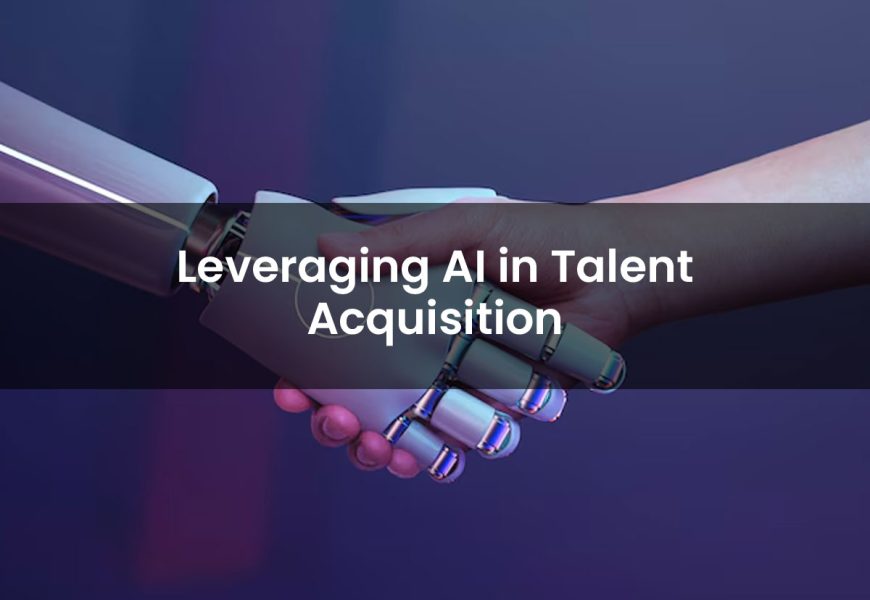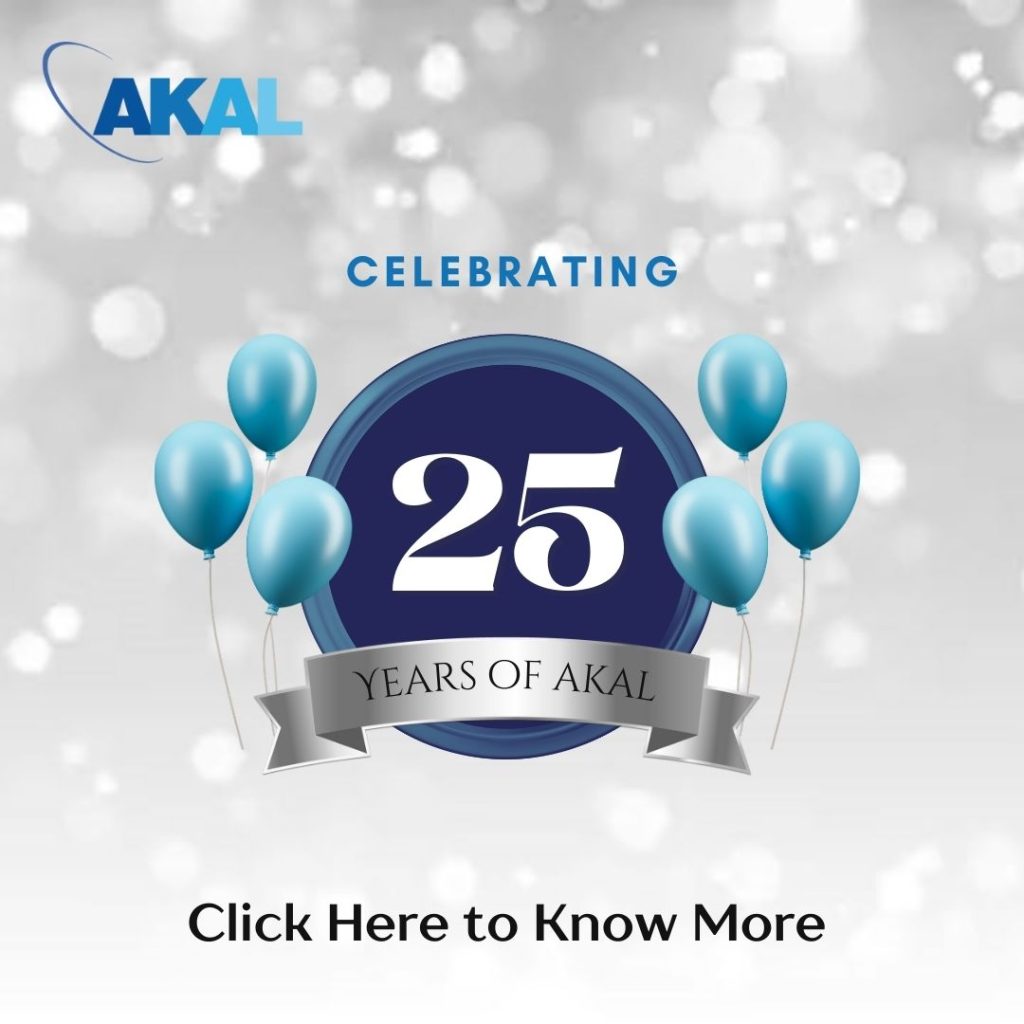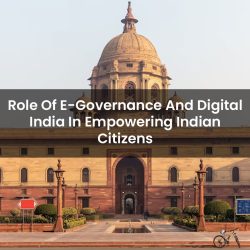Today’s landscape is rapidly evolving, especially when it comes to technology. Maintaining a competitive edge would require more than just the conventional methods, it requires innovative strategies that cover all the facets of business. It is important to keep up with the growing needs of the times and leverage AI and other emerging digital technologies to optimise operations and elevate customer experiences has become essential for organisations striving for excellence.
The financial sector and investors have certainly noticed this shift, with AI references on earnings calls increasing by an impressive 366% this year. As we move toward the future of work, AI literacy is becoming indispensable in the race for top talent.
Digital transformation is profoundly impacting corporate human resources and talent acquisition functions. AI is reshaping the recruitment landscape, offering both significant advantages and potential challenges. AI-powered recruiting tools enable companies to identify and hire the best talent more quickly, efficiently, and accurately than ever before.
Understanding and integrating these technologies is not just a choice, but a necessity for businesses aiming to stay ahead in this dynamic environment. The rapid pace of technological advancements, particularly in AI, demands immediate attention and action to ensure your organisation remains competitive and relevant.
In this article, we will be taking a closer look at how the working space is evolving and how you can use AI to your advantage.
Interesting Facts about AI in Talent Acquisition
Before we talk about the scope of AI integration in recruitment, let’s talk about the current scenario with some stats.
- Enhanced Hiring Process: An impressive 94% of recruiters report that AI has significantly improved their hiring processes.
- Job Improvement: 36% of recruiters and hiring managers believe that AI has made their jobs easier and more efficient.
- Boosting HR Values: Two-thirds (66%) of recruiting professionals feel that AI has the potential to enhance HR values and practices.
- Time Savings: 44% of survey respondents agree that AI helps recruiters save valuable time, allowing them to focus on more strategic tasks.
Despite its growing presence, 61% of Americans are unaware that employers are currently using AI in hiring. Why is America relevant? Almost all technology related progress and trends start within the offices of the Silicone Valley. Many candidates are often unaware that AI is screening and assessing them during the recruitment process. AI technology even allows candidates to practice interview questions with an AI coach who provides feedback on their responses.
Prominent companies are leveraging AI in their hiring processes. For example, Google uses AI to screen resumes and identify qualified candidates for open positions. LinkedIn utilises AI to recommend jobs to candidates and candidates to companies. Amdocs, along with many other firms, employs AI tools at every stage of recruitment and screening.
Areas Where AI is Revolutionizing Talent Management
- AI can analyse resumes, identify skills and experience, and use this data to qualify and rank candidates, ensuring the best matches for open positions.
- AI helps write job descriptions that are engaging and accurately reflect the work, attracting the right candidates.
- AI posts job descriptions to specific target audiences, increasing the chances of finding the ideal candidates.
- AI uses existing data and analytics to source and screen candidates, matching them to job and skill requirements with high precision.
- AI communicates with candidates, answering their questions and concerns intelligently without needing explicit programming for each response.
- AI assesses skills and capabilities not only based on job descriptions but also through interpreting job needs and analysing the success of previous job holders.
- AI conducts interviews using natural language processing in multiple languages, making the process more inclusive and efficient.
- AI generates comprehensive reports for internal leadership and legal compliance, streamlining administrative tasks.
- AI provides onboarding inputs and engages candidates before their arrival, ensuring a smooth transition into the company.
- AI analyses the success of recruiting campaigns, providing insights to improve future efforts.
- AI develops hiring plans and forecasts needs based on historical data and economic performance, aiding strategic decision-making.
The integration of AI in recruitment and talent management isn’t merely a trend that will fade into obscurity but a significant shift towards more efficient, accurate, and insightful processes. As AI continues to evolve, its role in hiring and HR will only become more pivotal, driving transformation across the industry.
How Would AI Benefit You?
Leveraging AI in talent acquisition offers numerous benefits that are transforming the recruitment landscape:
- More Efficient Processes: AI significantly accelerates the recruitment process by swiftly analysing vast volumes of data. Advanced algorithms can review thousands of resumes and applications within seconds, identifying the most qualified candidates almost instantly. This rapid processing eliminates extensive manual work, allowing HR professionals to dedicate more time to strategic initiatives.
- Enhanced Experience: AI-powered chatbots and virtual assistants are revolutionising how candidates interact with potential employers. These tools provide timely responses to queries, manage interview scheduling, and offer real-time feedback, thereby creating a more engaging and responsive application process. This improved experience not only enhances the company’s employer brand but also attracts top-tier talent.
- Data-Backed Decision Making: AI equips recruiters with the ability to make informed, data-driven decisions throughout the hiring process. Predictive analytics highlight the most effective recruitment strategies, enabling companies to allocate resources more efficiently. Furthermore, this data-centric approach reduces biases in hiring, fostering more diverse and inclusive teams.
- Improved Matching: AI algorithms excel in aligning candidates with appropriate job roles. By meticulously analysing resumes, skills, and job requirements, AI can identify the best-fit candidates, thereby increasing the likelihood of successful hires and reducing employee turnover.
What Are The Challenges to Adding AI in Talent Acquisition?
While AI offers significant advantages in recruitment, it also presents several important challenges that must be carefully managed:
- Fairness and Biases: Despite its potential to mitigate bias, AI in recruiting can still harbour biases if the training data used for algorithm development is biased. This can lead to a perpetuation of discrimination and inequality in hiring practices. Companies need to invest in comprehensive bias mitigation strategies to ensure equitable hiring processes.
- Security and Privacy: The integration of AI in recruitment raises significant privacy issues, particularly with the extensive collection and analysis of candidates’ personal data. Companies must be transparent about how they use data and take measures to protect candidates’ privacy rights, ensuring compliance with relevant regulations.
- AI and Human Balance: Although AI can enhance the candidate experience, there is a risk of making the process overly automated and impersonal. Companies must carefully balance automation with human interaction to maintain a personalised and engaging recruitment process.
- Skill Gaps: As AI assumes more routine tasks in recruiting, the skill set required for HR professionals is evolving. HR teams must adapt by acquiring new skills related to AI and data analytics to leverage these technologies and remain competitive effectively.
Will AI replace Working Professionals?
This question is a lingering one as artificial intelligence continues to progress at a speed no human can match. There are multiple industries right now, like content, graphic design, and even HR, that fear irrelevance once AI becomes more sophisticated and refined in its approach. However, the fear is moot as Ai would always need human intervention and command.
AI is simply meant to be a tool that aids your progress and efficiency at work. One thing that would make you indispensable in the current market is your willingness to adapt and upskill. Professionals right now are slowly upskilling, learning to leverage AI better in their respective fields and this is something that everybody should be doing.
So, when should you start your journey into partnering with AI in recruitment? No better time than right now. Here are some things that you should consider:
- Be strategic and start small: Avoid the temptation to overhaul your entire recruiting process with AI in one go. Instead, focus on one or two key areas where AI can have the most impact on improving your recruitment efforts.
- Conduct thorough research: Carefully evaluate different AI-powered recruiting tools to find the best fit for your business. Consider factors such as budget, specific needs, and overarching goals to make an informed decision.
- Invest in employee training: Ensure that recruiters and relevant staff are well-trained in using AI-powered tools. Proper training will maximise the effectiveness and fairness of these technologies.
- Regularly monitor your results: Keep a close eye on the outcomes of implementing AI in your recruiting process. This will help you identify areas for improvement and make necessary adjustments early on.
- Stay ahead of the curve: As the talent acquisition scene evolves, adopting AI is becoming essential. Embrace these advancements to avoid being left behind in the competitive race for top talent.
FAQs about Leveraging AI in Talent Acquisition
What are some common challenges associated with AI in recruitment?
Key challenges include bias and fairness concerns, privacy issues related to data collection and analysis, maintaining a balance between automation and personalisation in the candidate experience, and the need for HR professionals to adapt to evolving skill requirements.
How can businesses get started with AI in recruitment?
To begin, businesses should start small and focus on one or two areas where AI can make the most significant impact. It's crucial to conduct thorough research to choose the right AI-powered tools that align with the organisation's needs and goals. Proper employee training and ongoing monitoring of results are also essential steps in the implementation process.
What are some best practices for integrating AI into the recruitment process?
Best practices include ensuring transparency and fairness in AI algorithms, respecting candidates' privacy rights, maintaining a balance between automation and human interaction, and continuously evaluating and adjusting the use of AI-based on results and feedback.
Is AI in recruitment only suitable for large organisations?
No, AI in recruitment can benefit organisations of all sizes. While larger companies may have more resources to invest in AI technology, there are also AI-powered tools available that cater to the needs and budgets of smaller businesses. The key is to identify the specific areas where AI can add value to the recruitment process and choose tools accordingly.















